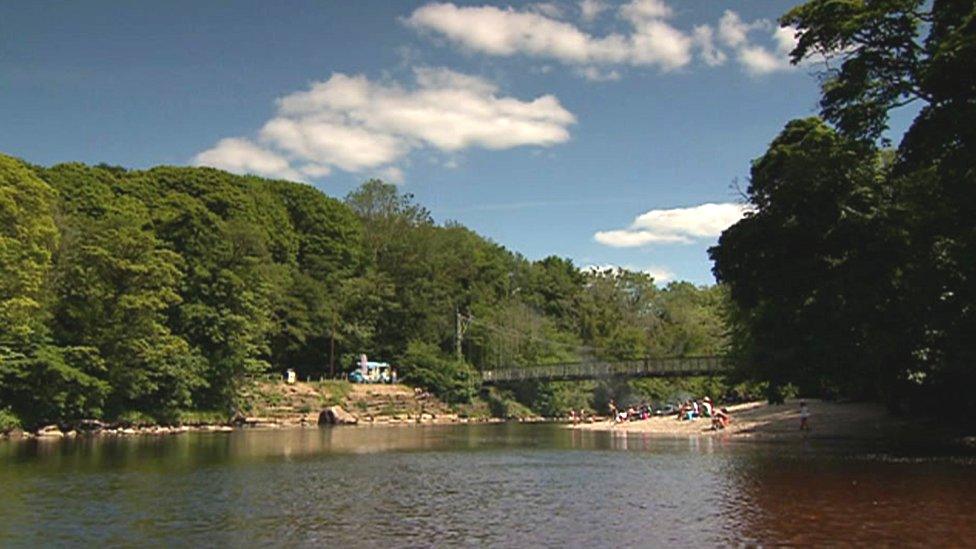Third of water bill cash goes on debt and dividend
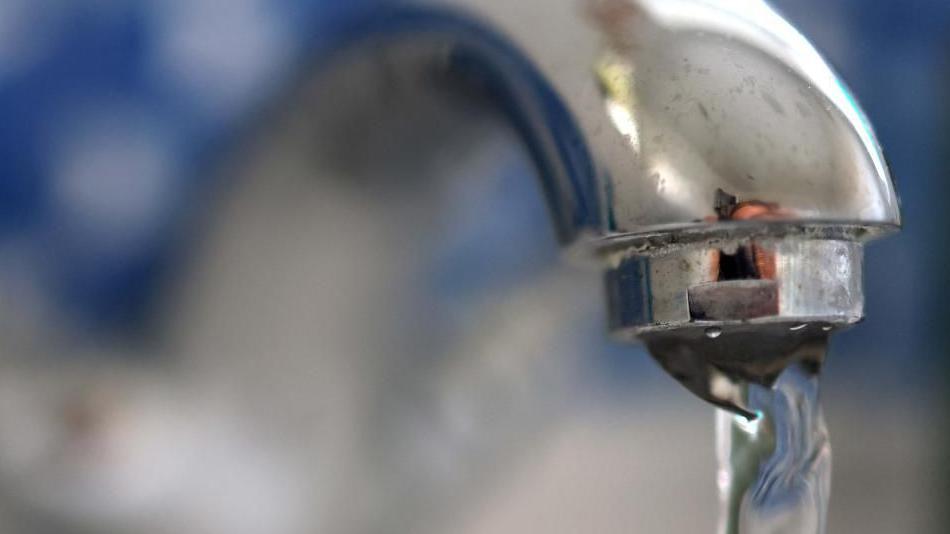
Ofwat is considering whether Yorkshire Water can increase customer bills by 25%
- Published
Debts and dividend payments swallow up a third of the money paid by a typical household to Yorkshire Water, research has shown.
The current average bill for a customer is £442, with about £140 of that cash flowing away from front line services, said water industry expert Prof David Hall.
The firm's latest accounts show that it has amassed debts worth £6.2bn and paid out dividends, external from its profits worth £522m since 2017-18.
Yorkshire Water said in the last five years it had "invested more than £3bn in the region's infrastructure" which was "delivering improvements for customers and the water environment".
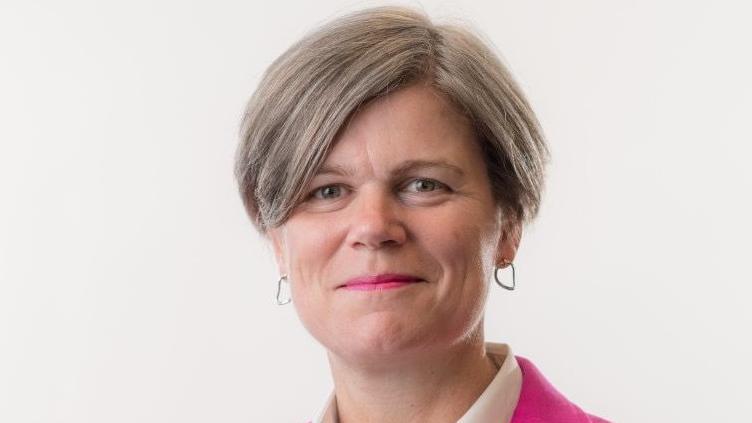
Nicola Shaw, Yorkshire Water's CEO, has previously apologised for sewage discharges into rivers
The research comes as campaign groups continue to call on chief executive Nicola Shaw to repay the £371,000 bonus she received last year - a period in which the firm was fined £47m for historical sewage spills and poor customer service.
Analysis of Yorkshire Water's financial records by BBC News identified that, over the past seven years, the company had paid out £2bn in interest on corporate debts and loans.
Meanwhile, it spent £1.2bn on "enhancement capital expenditure", which included building new sewers and increasing storm surge capacity.
Over that period, the firm's total debts rose from £4.8bn to £6.2bn.
In November, the rating agency Moody's downgraded the company's credit rating, external from stable to negative.
Prof Hall, visiting professor at the University of Greenwich, who has studied the financial profile of the major water companies in England since they were privatised in 1989, said his latest analysis suggested a growing proportion of the bills paid by Yorkshire Water customers was now being used to service increasing debts.
"All water companies realised they could borrow money and use that to pay themselves dividends, and that's why the amount of debt has risen year after year," he explained.
Prof Hall said: "It's like financial diarrhoea through the company, we pay our bills in - and it goes straight out the other end without any use at all."
According to company accounts, dividends paid out in the last seven years were not available to individual shareholders and had, instead, been used to pay down loans and intercompany loans.
The company has four ultimate shareholders, external based in Singapore, Hong Kong, the USA and Australia.
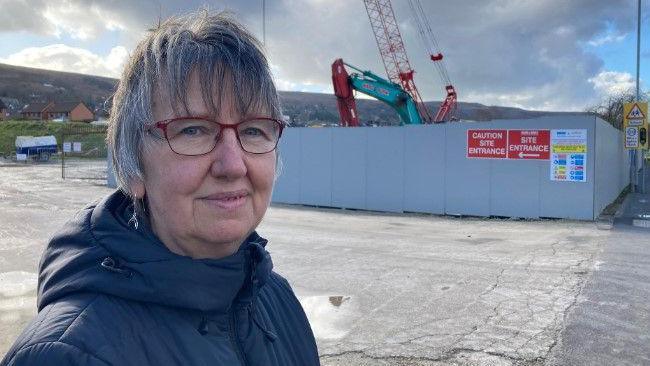
Diana Lury, in Ilkley, said rivers were being used "like an open sewer"
Yorkshire Water said Ofwat data showed water companies had delivered £236bn of investment since 1990, double the annual levels seen before privatisation.
It said investment was funded by shareholder input, customer bills and borrowing.
A spokesperson said: "The mix of funding means we can spread the cost of investment over a longer period – similar to a mortgage – which means a single generation of customers is not facing all the costs for the investment required."
Meanwhile, pressure is mounting on all water companies in England to reduce the amount of sewage released into local waterways.
Official figures show, external 87% of rivers in Yorkshire & the Humber fail to achieve a good ecological standard.
Since 2020, Yorkshire Water has discharged sewage into rivers for 1.5 million hours, according to the Environment Agency, external.
Diana Lury, a member of the Ilkley Clean River Group, said: "When it rains, untreated sewage flows into the River Wharf.
"From a pipe comes raw sewage containing wet wipes, toilet roll and sanitary towels.
"We are using our rivers like an open sewer and it makes me angry because I feel like I'm living in a Third World country."
Water companies are legally allowed to discharge untreated sewage when it rains to stop water systems overflowing and flooding people's homes.
However, earlier this year, BBC News uncovered evidence that every major water company in England had reported data suggesting they have discharged raw sewage when the weather is dry – a practice which is potentially illegal.
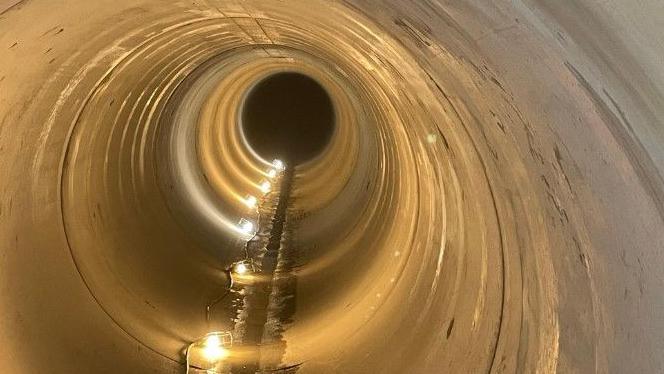
A new £15m sewer in Ilkley aims to reduce sewage discharges into the River Wharfe
Mrs Lury said: "As a bill payer, I pay a lot of money for Yorkshire Water to treat my sewage and give me clean drinking water.
"I get the clean drinking water, but here in Ilkley I effectively don't get my sewage treated because for a third of the year it gets poured out into the river."
In a bid to reduce sewage spills Yorkshire Water has committed to a £180m investment plan, announcing construction projects across the region to address the problem.
In Ilkley, the company has built a new 2,739 ft (835m) long sewer pipe, which it said will cut the amount of waste being discharged during heavy rainfall by a half.
Yorkshire Water's accounts also detail how in 2023-24 Ms Shaw received a salary and pension package worth £657,000 and a performance bonus worth £371,000.
Appointed as CEO in 2022, in her first year in charge Ms Shaw declined to accept a bonus because of public anger over sewage pollution in the county's rivers.
Matt Payton, organiser of the Friends of River Calder group, which is calling on Nicola Shaw to repay her bonus, said: "In what industry do you get to take home a bonus at the same time as running a failing business?"
In repsonse, Yorkshire Water said bonuses were decided by an independent remuneration committee and varied performance measures such as customer services and environmental measures were taken into account.
The spokesperson said the committee had taken the step of reducing bonuses for executive directors "to take into account the company's environmental performance not being where we want it to be".
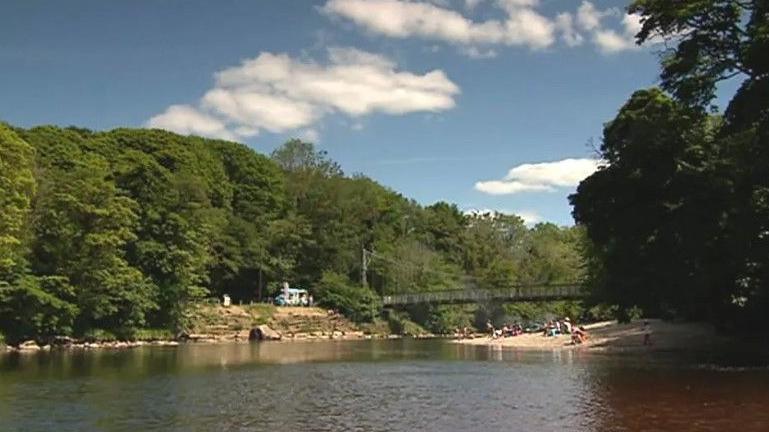
The River Wharfe in Ilkley is a popular swimming and paddling site but has experienced sewage discharges
The water regulator Ofwat is currently considering whether Yorkshire Water will be allowed to increase customer bills by 25% over the next five years in order to make improvements to its services.
If given the go-ahead, that could see the average household bill in the region reach £537 per year.
Mr Payton said: "We do want the rivers cleaning and we know the money needs to come from somewhere. So, I think people are understanding that maybe bills need to go up a little bit.
"But should our bills still be paying for fines and dividends and bonuses which could actually just be paying for infrastructure?" he asked.
The company said it was awaiting Ofwat's response to their plans, which is said were worth £8.2bn.
It said that money was "essential to improving our performance and delivering the service our customers want to see from us".
The spokesperson said the frim had achieved its target to reduce water leaking from pipes, "a world class health and safety performance" and was leading in the industry for wastewater treatment works compliance.
They added: "Our leadership team remains committed to improving our environmental performance and continuing the progress we've already seen in many other parts of the business."
Listen to highlights from West Yorkshire on BBC Sounds, catch up with the latest episode of Look North or tell us a story you think we should be covering here, external.
Related topics
- Published6 August 2024
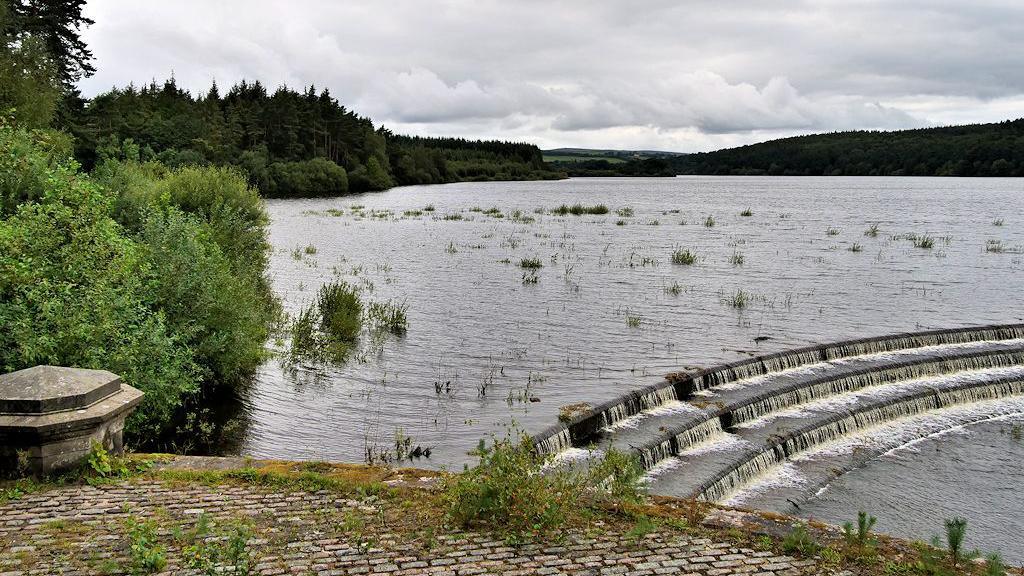
- Published24 July 2024
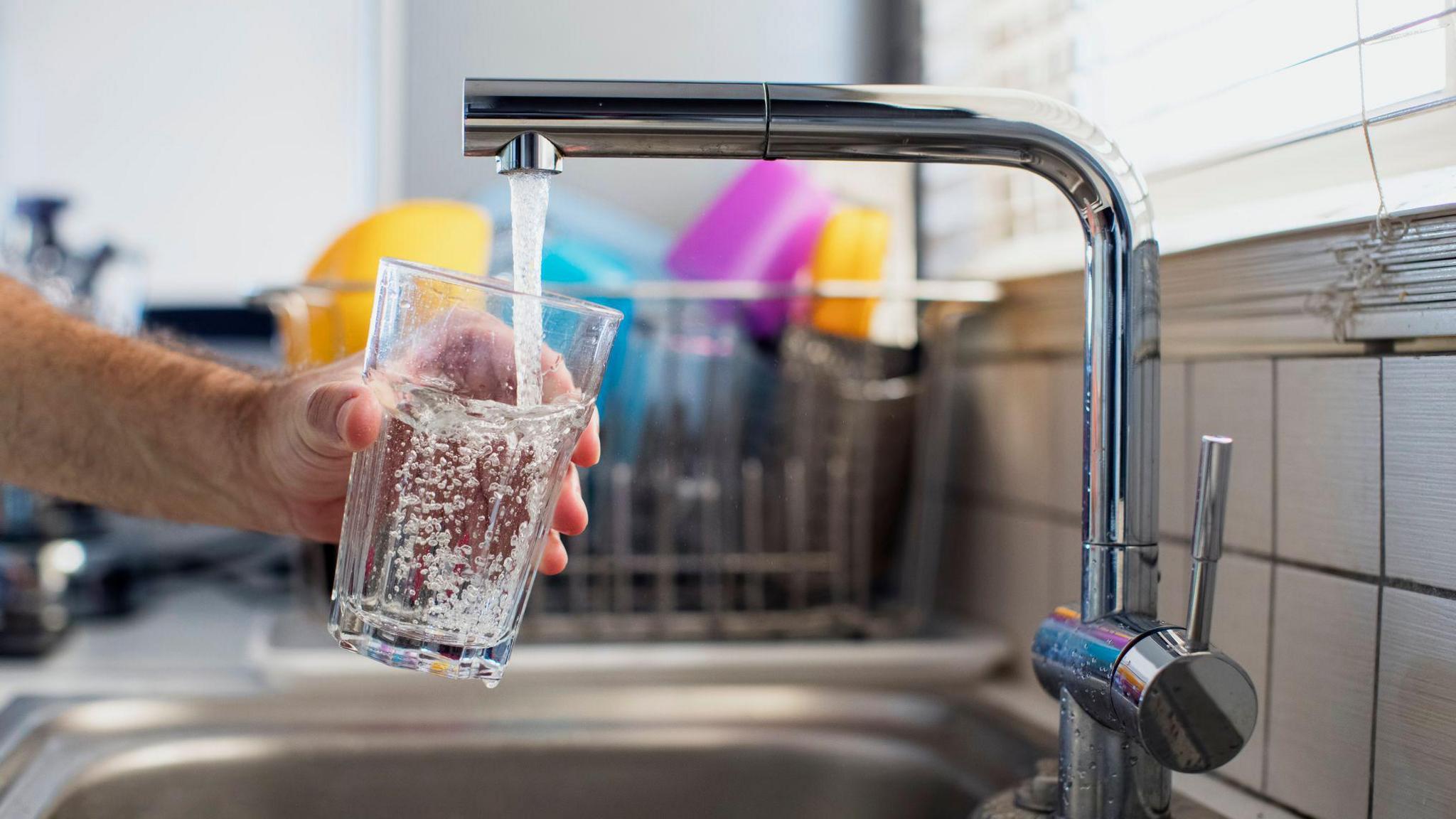
- Published18 May 2023
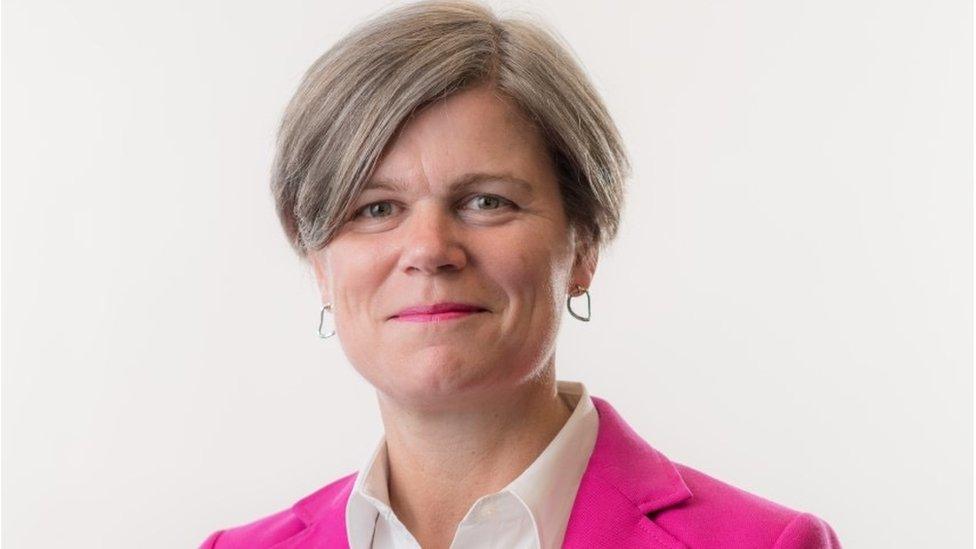
- Published17 March 2024
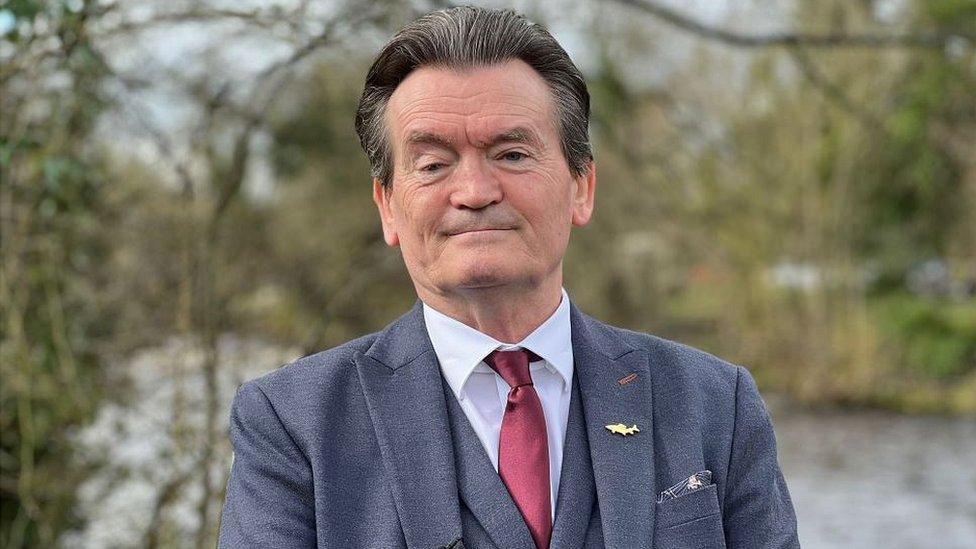
- Published13 February 2024
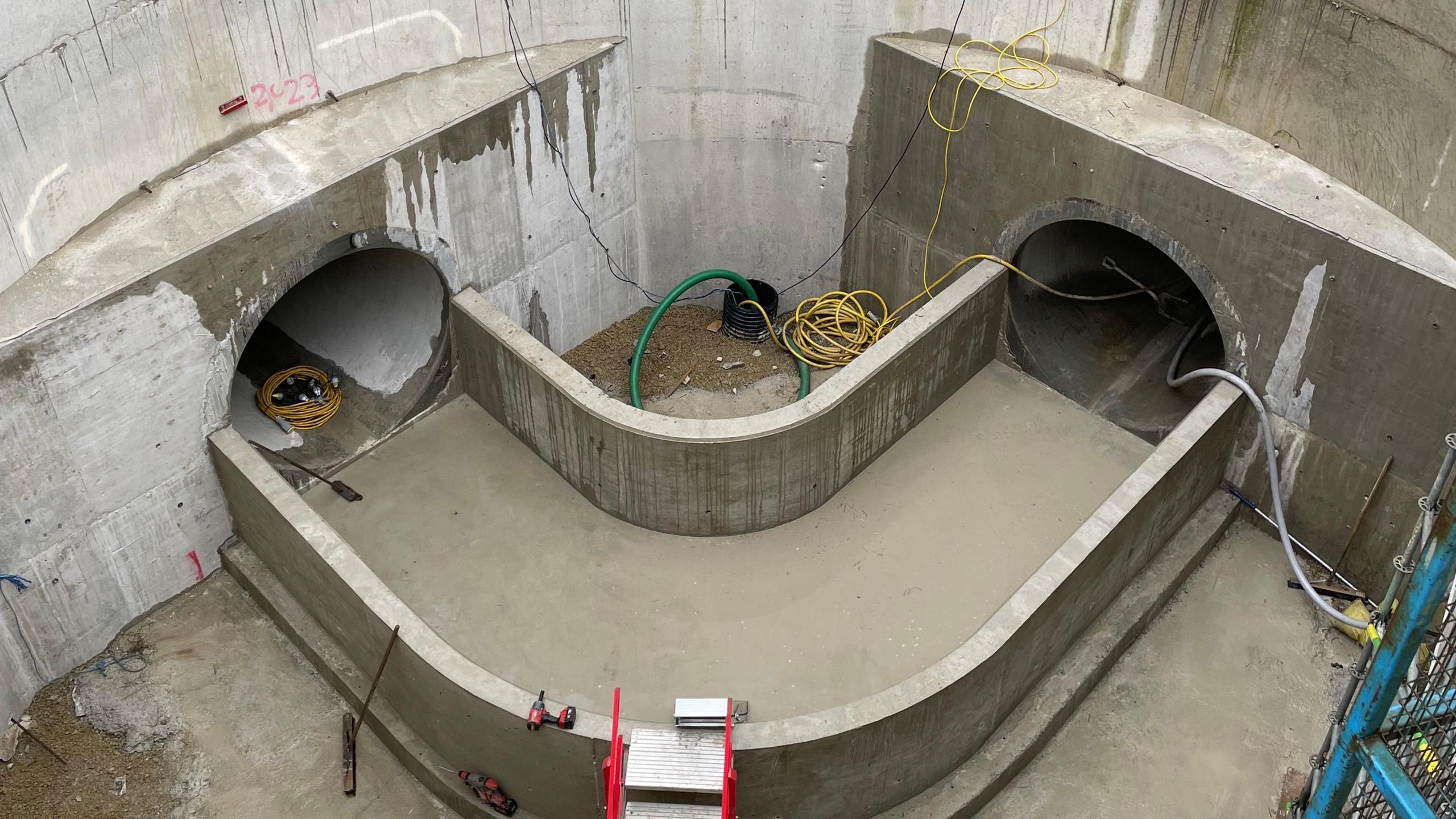
- Published16 March 2024
